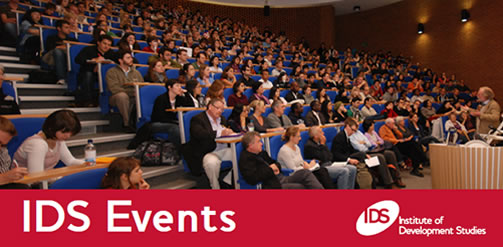Traditionally peacebuilding has been seen largely as the work of ‘outsiders’ – the UN family, international mediators, donor governments. The work of local peacebuilding organisations has been barely visible, barely mentioned – often dismissed as well-meaning but small scale and unlikely to make a significant difference.
However, the track record for international peacebuilding missions has been decidedly mixed, with many expensive and expansive Western-led programs falling short of their stated goals, if not failing outright. This has led to increased interest in understanding what can be achieved by local peacebuilding initiatives, and how these can be supported from outside without distorting or undermining them. While scaling up individual initiatives remains challenging, the recent experience in Kenya suggests that a variety of local peacebuilding initiatives, many with outside support, added together, were a significant factor in the relatively peaceful elections.
Recent political developments in the Middle East and elsewhere are taking the lid off previously suppressed conflicts. There is little that outsiders can do, particularly with the lack of legitimacy that many face. Hence there is a premium on developing local capacity to manage conflict without resorting to violence.
Carolyn Hayman, Chief Executive and co-founder of Peace Direct, will argue why ‘local first’ must be accepted as the most viable approach in helping post-war societies recover. By highlighting the work of Peace Direct’s local partners throughout the world, and exploring the relative impacts of both local and international peacebuilding projects, Peace Direct aims to promote more equal and effective collaboration between local and outsider peacebuilding initiatives. There will be an opportunity to discuss the barriers to greater involvement of local organisations, and how these can be overcome.
About the Speaker
Throughout a varied career in government, business and the not for profit sector, Carolyn’s focus has been on startups and innovation. Her driving passion has been for showcasing talent at the grassroots to those with power and resources.
After studying at Cambridge and SOAS, she joined the Ministry of Overseas Development, and subsequently became a member of the UK Cabinet Office Think Tank at 26, working on many cross cutting topics, including the social impact of microelectronics. Her interest in emerging ‘game changing’ technologies took her into consultancy, and then as Joint Managing Director of the Korda Seed Capital Fund, into technology startups. The fund eventually returned £28.5m to investors on a £5m investment and gave Carolyn the resources to begin a parallel career as a philanthropist.
In 1996, she became Chief Executive of the Foyer Federation, a network of projects providing holistic services to homeless young people. Over the next seven years she grew its turnover eightfold, providing services annually to 10,000 young people, introduced an accreditation system and won a contract to create 50 public access Internet centres in Foyers. In 2003 she was awarded an OBE for services to young people. Non-executive roles include Board member of the Commonwealth Development Corporation (1994-99) and member of the Quaker UN Office (Geneva) Committee (2006-2012).
About Peace Direct
Peace Direct was founded in the UK in 2004 to find, fund and promote locally led peacebuilding in conflict areas. We are working for a world in which local people lead in the resolution of their own conflicts, using their knowledge, experience and the moral authority which comes from the risks they take, and the sacrifices they make.
We are currently funding work in 9 conflict areas in Asia and Africa – work that is locally led and encompasses among other things, DDR, challenging religious extremism, building community capacity for conflict resolution, and training security services in conflict transformation.
We promote the work of almost 700 local peacebuilding organisations in 21 conflicts across the world. Every month, hundreds of visitors to Insight on Conflict, including many students and researchers, connect with the local peacebuilding organisations featured there. Our recently launched Local First initiative takes the concept of local leadership into the fields of development and humanitarian assistance.

